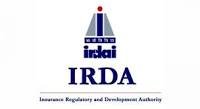Policy liberalized with conditions
While the Central Government is mulling over liberalizing foreign investment into insurance companies as well, the liberalization of the insurance intermediation is expected to boost foreign investment into the sector significantly, according to Abhinav Harlalka and Simone Reis of Nishith Desai Associates.
It is to be seen whether the removal of Indian owned or controlled would result in ‘top-down’ approach, where the investors move down from the holding company into the insurance intermediary, or a ‘bottom-up’ approach, where all investors in the intermediary move to the holding company level, which can be majority owned by non-residents and stay a level away from IRDAI’s scrutiny.
The duo comments on 29 Apr 2020 came following a series of amendments under various laws, the last of which was introduced on 27 April 2020, permitting 100% foreign investment into insurance intermediaries.
This has correspondingly removed the requirement for control to be with Indian residents but the liberalization comes with certain conditions, Harlalka and Reis pointed out.
However, the liberalization comes with certain conditions.
While the sector demanded foreign investment caps to be introduced for both insurance companies and insurance intermediaries, the expansion of the foreign investment limit in the insurance intermediary sector was always considered to be much more palatable, and easy administratively.
This was considered easier to push since intermediaries as such do not have any policyholders’ funds (as insurance companies do), and do not pose any systemic risk, the duo explained.
In addition, from a procedural perspective, expansion of foreign investment in insurance companies required an amendment to the Insurance Act, 1938 (as was done by the 2015 Amendment).
On the other hand, the regulations governing insurance intermediaries have been amended gradually to permit foreign investment to the extent permitted by the Central Government/Insurance Regulatory and Development Authority of India (IRDAI), and hence did not require amendment specifically to expand foreign investment.
With regard to 100% FDI in insurance intermediaries, the requirement of foreign owned and controlled has also been done away with.
Going forward, foreign investors shall be permitted to set up wholly owned subsidiaries registered as insurance intermediaries.
However, insurance intermediaries are still required to comply with the IRDAI regulations, which require the prior approval of the IRDAI for any transfer/issuance of shares above a certain threshold.
These vary across insurance intermediaries such as 5% in web aggregators and third-party administrators to 10% in case of brokers.
Insurance intermediaries had devised innovative structures with holding companies receiving foreign investment to attract foreign investment. fiinews.com










